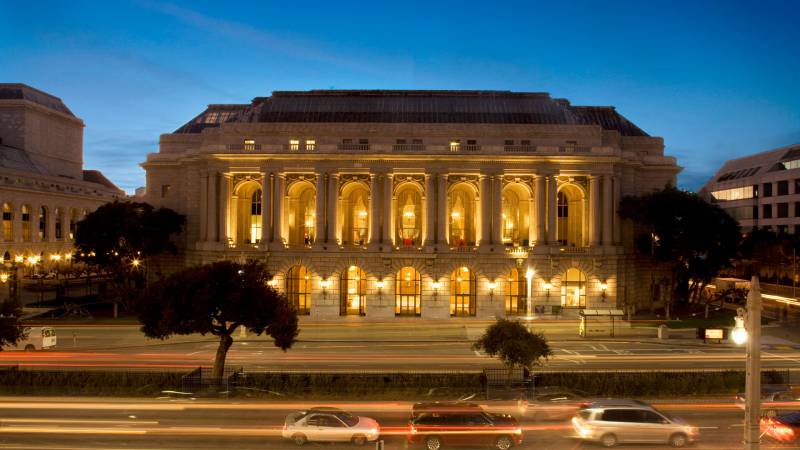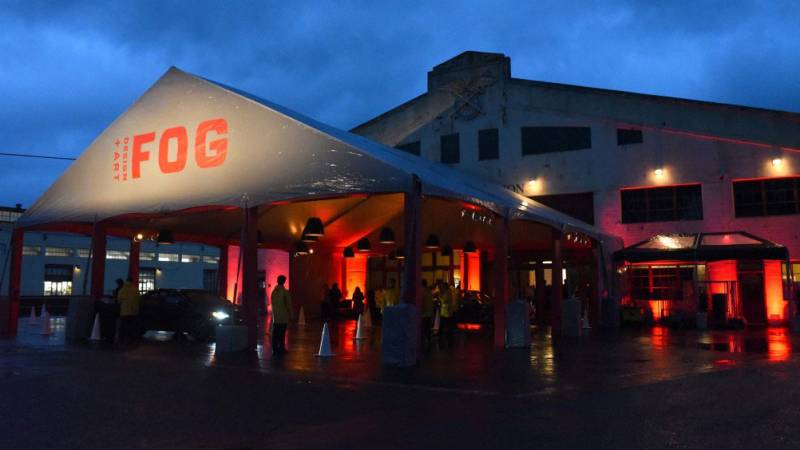Every year, Grants for the Arts awards the most sought-after type of nonprofit funding to San Francisco arts organizations: unrestricted general operating support. This kind of money isn’t sexy or splashy, but it helps nonprofits keep the lights on, pay their staff and maintain public programming in one of the most expensive cities in the United States.
‘Frustrating’ Delays in City Funding Affect Over 200 SF Arts Nonprofits

Established by the city of San Francisco in 1961 and funded by hotel tax revenue, Grants for the Arts (GFTA) is a much-relied-upon funding source in the city’s arts nonprofit world. Its recipients range from the very large (the San Francisco Symphony, the Exploratorium) to the very small (SF Urban Film Fest, Western Neighborhoods Project). Since its inception, it has distributed nearly $400 million to hundreds of San Francisco arts nonprofits. In 2018, San Francisco voters overwhelmingly supported its funding.
But over the past few months, arts administrators across the city have become increasingly distressed by the significant delays they’ve experienced while trying to get the money they were promised—and by the confusing communications they’re getting from the city’s granting organization itself.
‘Nobody’s gotten the money yet’
The July 2021–June 2022 GFTA grantees include 226 organizations who were awarded amounts ranging from $10,000 to $450,000. (Instead of receiving that amount upfront, nonprofits spend against their grant amount and submit paperwork for reimbursement.) KQED reached out to 34 GFTA grantees for this story. Of the 20 nonprofits KQED was able to contact as of publication, five had not yet received grant agreements. Two nonprofits received their agreements in just the past three days. And only one of the nonprofits who had submitted the paperwork for reimbursements (some as long ago as November) had received any funds—six months into the grant cycle.
Based on his own reconnaissance, Barry Threw, executive director of Gray Area Foundation for the Arts, says, “Nobody’s gotten the money yet.” That’s a stark difference from years past. “Usually you’re able to invoice half of it the year of the announcement and then invoice the other half in the spring of the next year,” he explains.
Adding to nonprofits’ frustrations, GFTA has not yet released any information about their FY23 grant cycle, applications for which would normally be due in February 2022. Arts administrators emphasize this is not an easy application process. The packet of required materials can run to dozens of pages, including a lengthy narrative, a budget snapshot, materials relating to board membership, a recent financial review, multiple tax forms, a list of previous and planned events, brochures and press clippings.
Last year, GFTA even teamed up with Intersection for the Arts to offer a four-part workshop and lab series to coach nonprofits through the process and make the grant more accessible to first-time applicants. But if last year’s GFTA watchword was “equity,” this year’s seems to be “TBD.”
‘The process has become a big mystery’
Seeking information on the status of their current grant cycle, KQED received an auto-reply from GFTA that paints a picture of a severely understaffed organization. The email explains that GFTA is “down to a team of two,” and that two employees from the San Francisco Arts Commission have been brought on to help with the workload. In a bullet-point list of what appear to be frequent email topics, the auto-reply states that the release date for the next grant cycle “has not been identified.”
A spokesperson from the Office of the City Administrator, which oversees GFTA, provided KQED with a statement about the delays: “Many city departments are experiencing staffing impacts currently as the result of the pandemic. It has and will continue to be a priority to get grant funding and contracts out to all of our city service providers and the Arts Commission and Grants for the Arts staff are working together to do just that.”
GFTA grantees who spoke to KQED say it’s been difficult to get in contact with anyone at the organization to even check on the status of their grant agreements. KQED’s multiple calls to the office went unanswered.
Arts administrators say that in past years, even during the pandemic, the granting process worked fairly smoothly and on schedule; staff were accessible and supportive of the organizations GFTA funded. But they began to notice a string of departures from GFTA after Director Vallie Brown was appointed to the position by Mayor London Breed in February 2021. All four staff members who worked at GFTA prior to Brown’s arrival have since retired or left, and only one new employee has joined.

Perhaps as a result of these staffing changes, current GFTA grantees have been asked to re-submit their information as many as four or five times in recent months, sowing confusion and anxiety in an already strained sector.
Jeff Thomas, executive director of San Francisco Center for the Book, remembers when GFTA had a staff of five. “The general feeling is that a lot of really good people have left for whatever reason, that it’s now vastly understaffed in order to be able to do all the good things that they had been doing in the past,” he says. “And that the process has become a big mystery that is really sort of stressing people out.”
‘What if I lose my funding?’
After months of being asked for and resubmitting their information, GFTA grantees received a Nov. 11 email from Brown. The subject line read “URGENT”:
I appreciate how the lion’s share of the organizations we’re privileged to support have diligently worked to meet the requirements for our FY22 General Operating Support grant. However, many of you continue to have outstanding documentation, which impedes my staff’s (and those who are helping us from the SFAC) ability to generate your contracts. …
If GFTA does not have all of your documents by Wednesday, November 17, 2021, we cannot guarantee your contract will be executed in a timely manner. The onus is on you to make sure you are in compliance with my department and the City, and I hope you’re able to be responsive to the emails that my staff has been distributing for several weeks.
Even administrators who knew all their materials were in good standing suddenly felt doubt. The mass email, says Gray Area’s Threw, made it unclear who was actually missing information. “Do you have our stuff or not?” he wondered.
“It just got to be very frustrating where people were thinking they were done, and then all of a sudden, everybody was thrown off,” says Thomas. “What if I can’t prove that I sent it in? And what if I lose my funding?” he remembers asking. “I mean, it’s a major source of funding for a lot of small organizations.”
Jennifer Walsh, executive director of ABADÁ-Capoeira San Francisco, says they still don’t have a grant agreement despite having submitted all the required documents. “We did receive an email explaining they are working hard to get agreements out so they can begin processing reimbursements,” Walsh wrote via email, emphasizing that GFTA is one of the organization’s primary funders and they are deeply grateful for the support. While hopeful that GFTA will get agreements and payments out to people as soon as possible, Walsh wrote, “Funding delays do put a strain on our operating budget, since we use funding for fixed costs, including rent.”
Many of the arts administrators KQED reached out to for this article would not go on the record about their experiences.
“The pandemic is still going on,” says Thomas of San Francisco Center for the Book. “There’s no more Paycheck Protection Program, there’s no more of this other funding. No one wants to speak out against an organization where they may be getting some substantial funding.”
“I think that GFTA has been such an amazing organization,” Thomas continues. “There’s no reason it couldn’t come back and be that again, but it just feels like it’s going through a rough patch.”
A rough patch, unfortunately, that affects the bottom line of 226 San Francisco arts nonprofits.
This story includes reporting by Julian Sorapuru.



